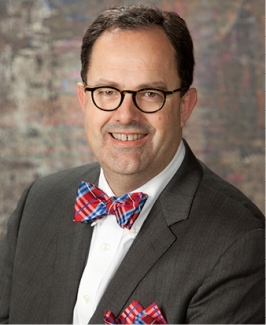Update (Sept. 23, 2016): This month, Dr. Nickerson receives the ASHI Paul I Terasaki Clinical Science Award, which recognizes his team’s success in identifying the role of HLA antibodies in causing premature kidney graft loss and developing novel strategies to prevent their development. Read more in the blog post below and in the UMToday story Transplant Trailblazer: U of M researcher receives prestigious awards
Dr. Peter Nickerson awarded the AST Clinical Science Established Investigator Award
The 2016 Annual American Transplant Congress — a Joint Annual Meeting of the American Society of Transplant Surgeons and the American Society of Transplantation (AST) — was held in Boston on June 11–15. A gathering of transplantation medicine professionals, it is considered North America’s leading educational event in the field of basic and clinical transplantation.
At this year’s meeting, our own Dr. Peter Nickerson, medical advisor, organ donation and transplantation division, was awarded the AST Clinical Science Established Investigator Award for leadership in standardizing laboratory practices in Canada and developing an interprovincial transplant network that has affected the lives of hundreds of Canadians to date. Dr. Nickerson’s research into organ rejection has also created new lifesaving standards for transplantation.
“It’s a huge privilege to be recognized by my peers through one of the most distinguished transplant societies in the world,” says Dr. Nickerson. “While this award recognizes the individual, it really reflects the work of the team at Canadian Blood Services and my colleagues at the University of Manitoba.”

In 2008, Canadian Blood Services received the mandate to work with the provinces in developing the first nationally coordinated system for organ transplantation. Dr. Nickerson joined the team at its inception, helping design a system that would meet the needs of patients through the Kidney Paired Donation Program, the Highly Sensitized Donor Program and the standardization of Human Leukocyte Antigen laboratories.
“It’s through those opportunities that we built the Canadian Transplant Registry, which I think is one of the best systems in the world,” continued Dr. Nickerson. “Canadian Blood Services has been absolutely essential to bringing my research forward. Without them, I would not have received this prestigious honour.”
Dr. Nickerson is also a Distinguished Professor of Internal Medicine and Immunology and the Vice Dean (Research), Faculty of Health Sciences at the University of Manitoba. Dr. Nickerson holds the Flynn Family Chair in Renal Transplantation at the University of Manitoba. Funded by the Canadian Institutes of Health Research and National Institutes of Health, his research program focuses on mechanisms underlying acute and chronic transplant rejection; developing non-invasive techniques for the diagnosis of renal allograft rejection; and healthcare system design to enhance access to transplant.
Congratulations Dr. Nickerson!
You can read more about this and other 2016 AST achievement awards and grants here.
Dr. Peter Nickerson, Kidney Transplants, via Doctors Manitoba (video)
Recent publications:
Strategic Use of Epitope Matching to Improve Outcomes
Canadian Forum on Combined Organ Transplantation
Estimation of Potential Deceased Organ Donors in Canada
Canadian Blood Services – Driving world-class innovation
Through discovery, development and applied research, Canadian Blood Services drives world-class innovation in blood transfusion, cellular therapy and transplantation—bringing clarity and insight to an increasingly complex healthcare future. Our dedicated research team and extended network of partners engage in exploratory and applied research to create new knowledge, inform and enhance best practices, contribute to the development of new services and technologies, and build capacity through training and collaboration.
The opinions reflected in this post are those of the author and do not necessarily reflect the opinions of Canadian Blood Services nor do they reflect the views of Health Canada or any other funding agency.
Related blog posts
Transplanting organs, tissue or stem cells from one person to another saves lives. It was not easy to figure out what facilitates a healthy and successful transplant though. Efforts over a long time reveal the complexity of the procedure and that very specific circumstances are required. As researchers’ understanding of the immune system improved, so did the success rate of transplants.
